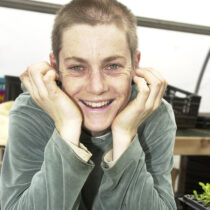Raw Land
Ground Level
- Publication: East Hampton Press
- Published on: Sep 25, 2024
- Columnist: Marilee Foster
My friend and I watched her house burn. It was an old home and it was going quickly, and yet so slowly the loss spread. Firefighters worked to control it,...

 More Posts from Marilee Foster
More Posts from Marilee Foster